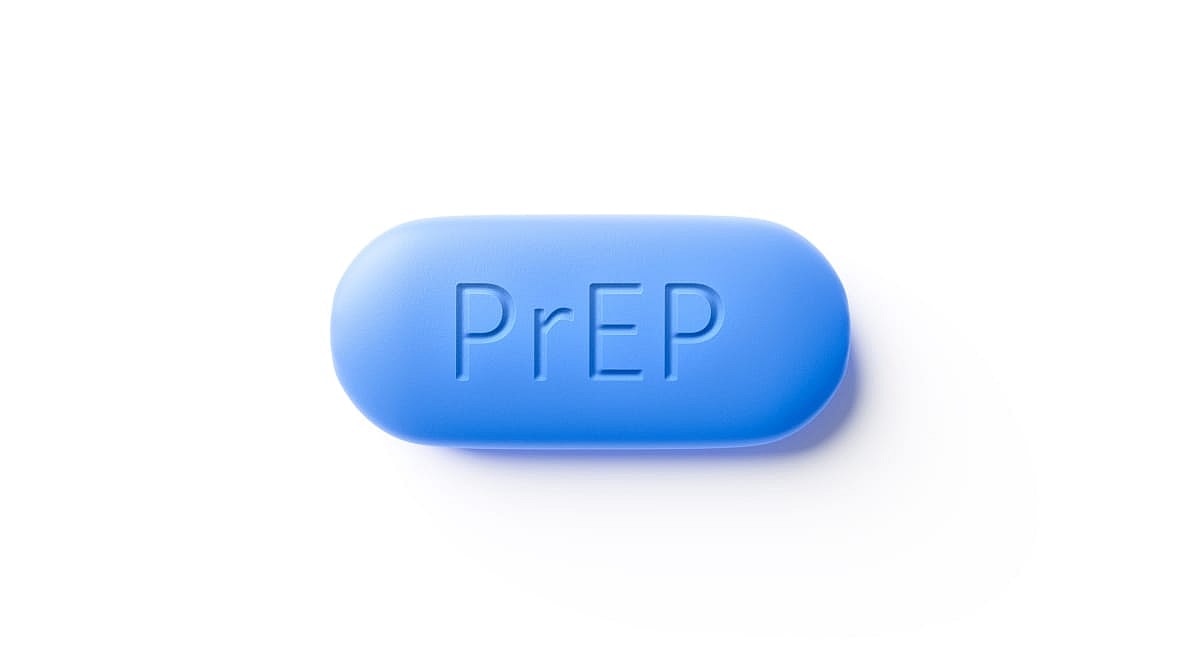While HIV infections have continued to decrease since the epidemic’s height in the mid-1990s, they still disproportionately impact Black and brown people — especially Black women, who, according to the JAMA Network, are leading in new cases. The Human Rights Campaign (HRC) aims to end the HIV epidemic by 2030, with the nation’s Historically Black Colleges and Universities playing a large part.
Earlier this month, Torrian Baskerville, the HRC’s Health and Equity director, and Leslie Hall, the HRC’s director of Historically Black Colleges and Universities, sat down with theGrio to discuss the organization’s efforts to end HIV among Black and brown communities. They shared that a significant part of that initiative involves reaching young adults on their level.

“The way in which we are approaching ending the HIV epidemic, from our vantage point, is really addressing public education,” Baskerville said.
In practice, this looks like a multipronged approach involving dispelling misinformation through initiatives such as the campaign’s “My Body, My Health” program launched with Gilead Sciences, addressing low HIV testing numbers and reaching out to individuals who are “out-of-care.” The HRC’s plan also includes addressing the stigma and barriers that keep people from seeking testing or seeking care.
Hall shared that during the first iteration of the initiative, the HRC looked closely at HBCUs and learned that stigma around the disease was the No. 1 issue standing in the way of students aged 18 to 25 seeking care. They also found a lack of information and resources in the colleges’ health centers and saw an opportunity.
“We determined that we needed an approach or an initiative that allows students to get the information, to be connected to a treatment resource, and that needed to be confidential,” said Hall.
Baskerville explained the intention behind focusing on HBCUs in the South.
“We know that the South has the highest population of Black residents. We also know that the South has the highest population of people living with HIV and new infections. We also know that the South has the area with the most structural barriers,” said Baskerville.
In response, the HRC’s HBCU PrEP Ambassador Program was born. Pre-Exposure Prophylaxis, or PrEP, is a preventive drug that, according to the HRC, has been found 99% effective at preventing HIV during sex. Knocking down the stigma associated with both the disease and the preventive drug and increasing Black and brown students’ access to accurate information and resources are the program’s main goals.
In the Ambassador Program, student leaders are selected from participating HBCUs and are thoroughly trained to lead informational sessions, man tables at major school events, discuss PrEP, HIV prevention, and sexual health with fellow students, and lead them to resources. Training takes place in Washington, D.C., and the students receive a stipend and a budget for their work. At the close of the 2022-2023 school year, Baskerville and Hall said the program had already demonstrated success.
For Hall, a clear sign of progress was when students let go of the mindset that they didn’t need PrEP and proved receptive to learning more about HIV and preventive care.
“We’re seeing when they can engage with their peers and engage with a healthcare provider in a confidential setting, and mom and dad or a caregiver won’t find out about it, our students do have an appetite to engage,” he said.
During the 2022-2023 school year, the program, which launched with 10 peer educators across nine campuses, encouraged almost 30 students to sign up for PrEP.
Baskerville added that beyond the numbers, there are other ways the HRC is quantifying the impact of its initiatives, including through individuals who have galvanized state leaders and led HIV decriminalization efforts.
“There’s many ways in which we know that this work that we’re doing is important, is meaningful, but it is working, and it’s important that we continue this work,” he said, adding, “I think Gilead saw those efforts and sees that it needs to [continue], which is why this year, they were able to expand our efforts.”
Heading into the 2023-2024 school year, the HBCU PrEP Ambassador Program will have one peer educator each at 10 different campuses, with a new goal of signing up 100 students for PrEP. At the time of theGrio’s interview, the program was selecting its next round of student educators.
In addition to helping peers gain better sexual health and earning some leadership experience, Baskerville noted that being a peer educator can open doors for students.
“There’s a level of access that those individuals who get selected have,” Baskerville explained. “So many of those individuals come back, and they intern, or they volunteer with us. So it gives them more exposure to the work that we do. It gives them more access to our partners.”
To help keep these efforts afloat, the HRC always welcomes financial and physical support. One aspect of the peer educators’ training involves monthly webinars hosted by subject matter experts who aren’t always focused exclusively on HIV prevention. The organization is always looking for volunteers to host.
Speaking more broadly, Baskerville noted that old mindsets around who is impacted by HIV have to continue to change.
“While HIV impacts some communities more than others, the effort to end the HIV epidemic by 2030 requires that all of us do work and put our hands in this effort. I just want to throw that out there and be clear that we all have a dog, so to speak, in the fight,” said Baskerville. “So it’s important that we all do our best to do what we can.”
TheGrio is FREE on your TV via Apple TV, Amazon Fire, Roku, and Android TV. TheGrio’s Black Podcast Network is free too. Download theGrio mobile apps today! Listen to ‘Writing Black’ with Maiysha Kai.

